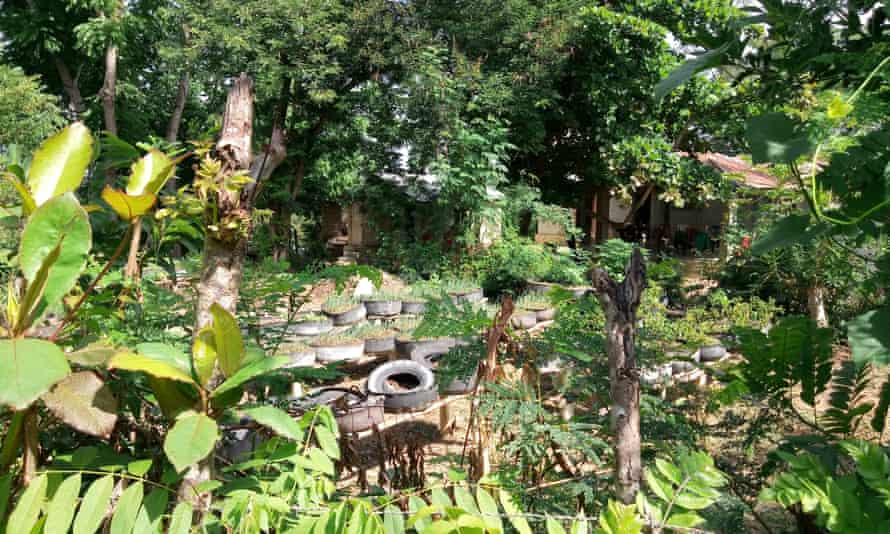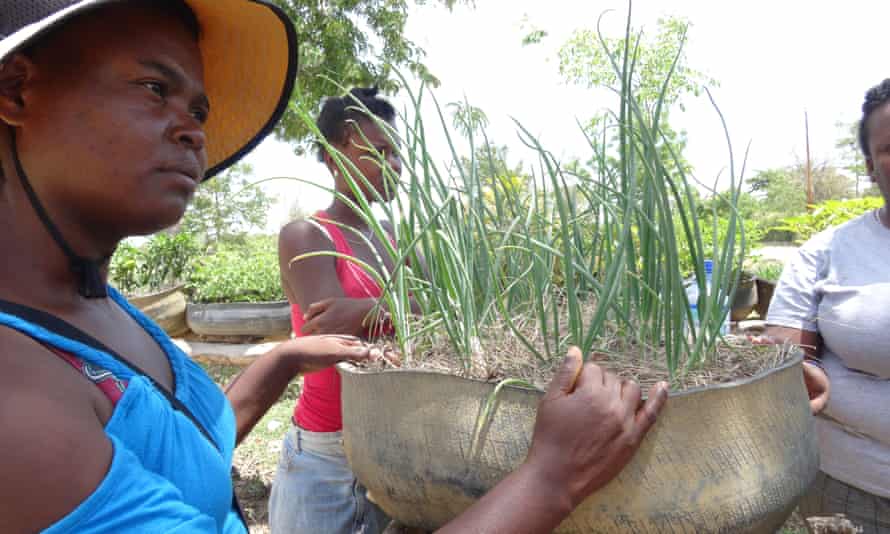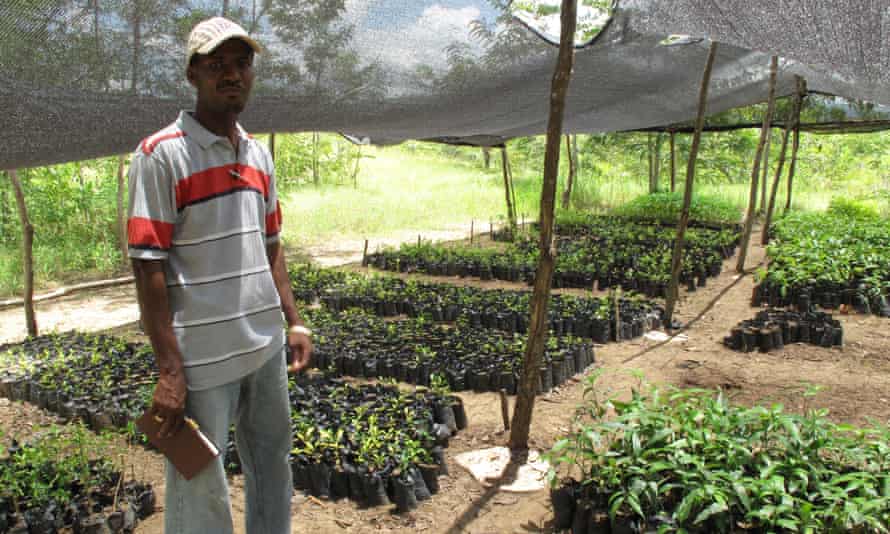HAiti, the poorest country in the Western Hemisphere, has often been synonymous with deforestation and environmental calamity. It is often said that its border with the Dominican Republic can be seen from space, so stark is the difference between the lush forests to the east and the scarred wastelands to the west.
“In nature everything is connected to each other,” said Jean-Baptiste Chavannes, who in 1973 founded the Papaye Peasant Movement (MPP), which works to address deforestation and the climate crisis in the poorest regions of Haiti. “Annoying one is annoying all.”
Haiti’s problems seem to deepen with each passing month. Widespread protests and fuel shortages have marked daily life for two years. In July of last year, the president of the Caribbean country, Jovenel Moïse, was assassinated in his own home. The following month, its impoverished southern peninsula was hit by a 7.2 magnitude earthquake, which killed at least 2,200 people and destroyed tens of thousands of homes. Then, in September, a wave of deportations of Haitian citizens from the United States, amid an alarming rise in kidnappings, pushed Haiti into further instability.
But at the root of much of the country’s vibrant but embattled problems is environmental injustice and food insecurity, with 4.4 million people (out of a population of nearly 11 million) at risk of starvation. Widespread deforestation over centuries, largely due to the colonial timber trade, as well as more recent logging for cooking fuel, has damaged fertile lands and left them vulnerable to erosion, floods and drought. Seasonal hurricanes wreak havoc on homes and livelihoods and contribute to agricultural degradation every year.
Previous top-down international development projects inundated Haitian markets with unsustainable staple foods, crippling attempts by local farmers to achieve food sovereignty.

MPP is a grassroots organization that seeks to address the climate crisis and related food insecurity by working with subsistence farmers throughout Haiti. With more than 40 years of experience in Haiti’s rural central plateau, MPP works with 60,000 members to improve the deforested landscape so that the people who live there can eat, while increasing forest cover to help reduce carbon levels.
“The fight for food sovereignty is the fight against global warming,” said Chavannes. “All actions aimed at food sovereignty will have a direct impact on the climate crisis.”
MPP carries out its work directly with the local population, while trying to reduce farmers’ dependency on multinational organizations and charities, which have often mismanaged resources and contributed to Haiti’s challenges, said Jusléne Tyresias, director of MPP programs.
“A local approach is better because it creates direct employment, values local knowledge, skills and resources,” he said, adding that large international NGOs often spend resources on expensive hotels and transportation, rather than using local knowledge. “The locals who live in the territory will be more involved because they know the seriousness of the problem better than those who come from outside.”
This grassroots approach has won praise from its international sponsors, including the Climate Fund. Global Greengrants Fund UK, one of four charitable partners in the Guardian and Observer’s 2021 Climate Justice Appeal, is a member of the Climate Fund and will use its share of the appeal’s donations on grassroots projects like MPP.

“MPP is a fantastic example of the kind of grassroots movements that Climate Fund resources in more than 160 countries globally; They demonstrate the effectiveness of creating solutions from the bottom up, not only what is built, but also how it is built with whom,“Said Lindley Mease, Climate Fund Director. “They meet the material needs of a climate-ravaged island through abundant and culturally appropriate food, sustainable water reclamation systems, and improved soil health, while maintaining an active membership of 61,000 governed by a circle of women. . As part of the 200 million members [international farmers’ movement] La Via Campesina, they are modeling how strategic collective organization can cool the planet at scale. “
As a result of MPP’s work, swaths of the Central Plateau, once devastated by deforestation, are now teeming with life. The MPP peasant network has planted tens of millions of trees, while organizers have installed water infrastructure for homes and crops while training Haitian women and youth in agroecology. Solar panels have been installed in homes, reducing dependence on burning wood for fuel, and a radio station broadcasts environmental training and advice.
“At the regional and international level, the MPP is part of global efforts to strengthen grassroots feminist movements and is part of a global movement of small farmers promoting food sovereignty with La Via Campesina,” said Sara Mersha, director of the concession. of grants and promotion. at Grassroots International, after a visit to one of MPP’s projects.

“It is this combination of strategies, with a focus on a powerful organization and a connection to the land, that makes me understand what it means when MPP and La Via Campesina claim, ‘Small farmers cool the planet!’”
MPP has also used rapid response teams during Haiti’s frequent natural disasters, including the earthquake that struck the south of the country in August. In the immediate aftermath of that tragedy, MPP provided food, water and shelter, before introducing long-term resilience strategies such as seed distribution and local infrastructure development.
In 2010, when an earthquake ripped through much of the capital Port-au-Prince and surrounding areas, killing more than 220,000 people, MPP established ecovillages, in which survivors and victims were taught to live and farm sustainably.
Despite such a broad mandate, the founder of MPP believes that the movement’s work is based on a central principle: sovereignty. “Sovereignty is fed as the right of everyone to define policies for the production of food that respect the environment,” said Chavannes. “Respect for human life; respect for the rights of peasant families over agricultural lands; the rights of indigenous peoples over their territories; respect for women’s rights and respect for culture; and ways to feed people. “
www.theguardian.com
George is Digismak’s reported cum editor with 13 years of experience in Journalism